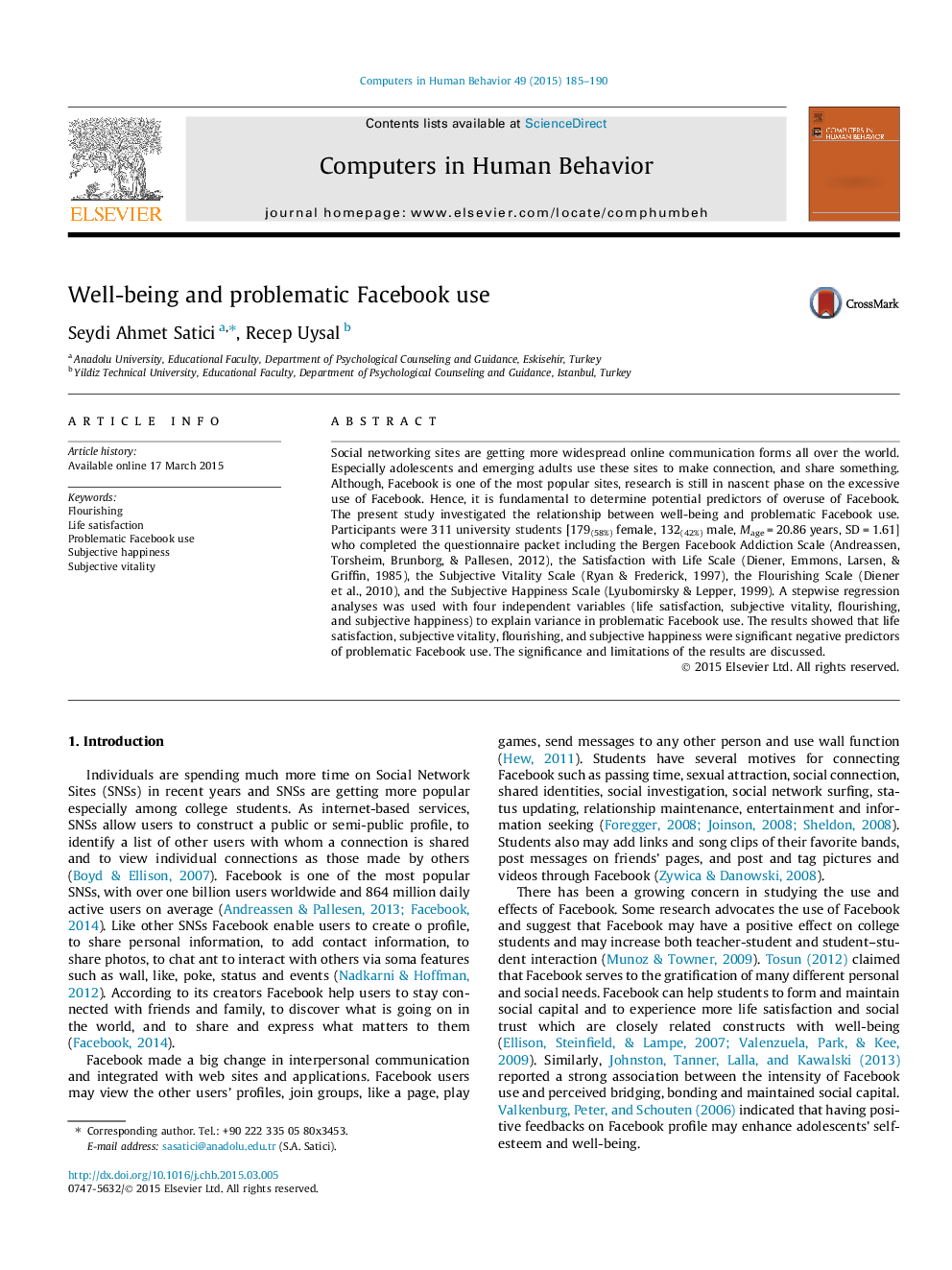| Article ID | Journal | Published Year | Pages | File Type |
|---|---|---|---|---|
| 350316 | Computers in Human Behavior | 2015 | 6 Pages |
•We examined the possible relation with well-being and problematic Facebook use.•Life satisfaction negatively associated with problematic Facebook use.•Subjective vitality negatively associated with problematic Facebook use.•Flourishing negatively associated with problematic Facebook use.•Subjective happiness negatively associated with problematic Facebook use.
Social networking sites are getting more widespread online communication forms all over the world. Especially adolescents and emerging adults use these sites to make connection, and share something. Although, Facebook is one of the most popular sites, research is still in nascent phase on the excessive use of Facebook. Hence, it is fundamental to determine potential predictors of overuse of Facebook. The present study investigated the relationship between well-being and problematic Facebook use. Participants were 311 university students [179(58%) female, 132(42%) male, Mage = 20.86 years, SD = 1.61] who completed the questionnaire packet including the Bergen Facebook Addiction Scale (Andreassen, Torsheim, Brunborg, & Pallesen, 2012), the Satisfaction with Life Scale (Diener, Emmons, Larsen, & Griffin, 1985), the Subjective Vitality Scale (Ryan & Frederick, 1997), the Flourishing Scale (Diener et al., 2010), and the Subjective Happiness Scale (Lyubomirsky & Lepper, 1999). A stepwise regression analyses was used with four independent variables (life satisfaction, subjective vitality, flourishing, and subjective happiness) to explain variance in problematic Facebook use. The results showed that life satisfaction, subjective vitality, flourishing, and subjective happiness were significant negative predictors of problematic Facebook use. The significance and limitations of the results are discussed.
